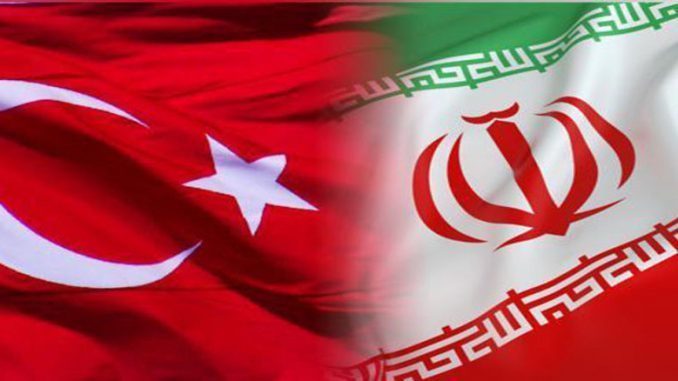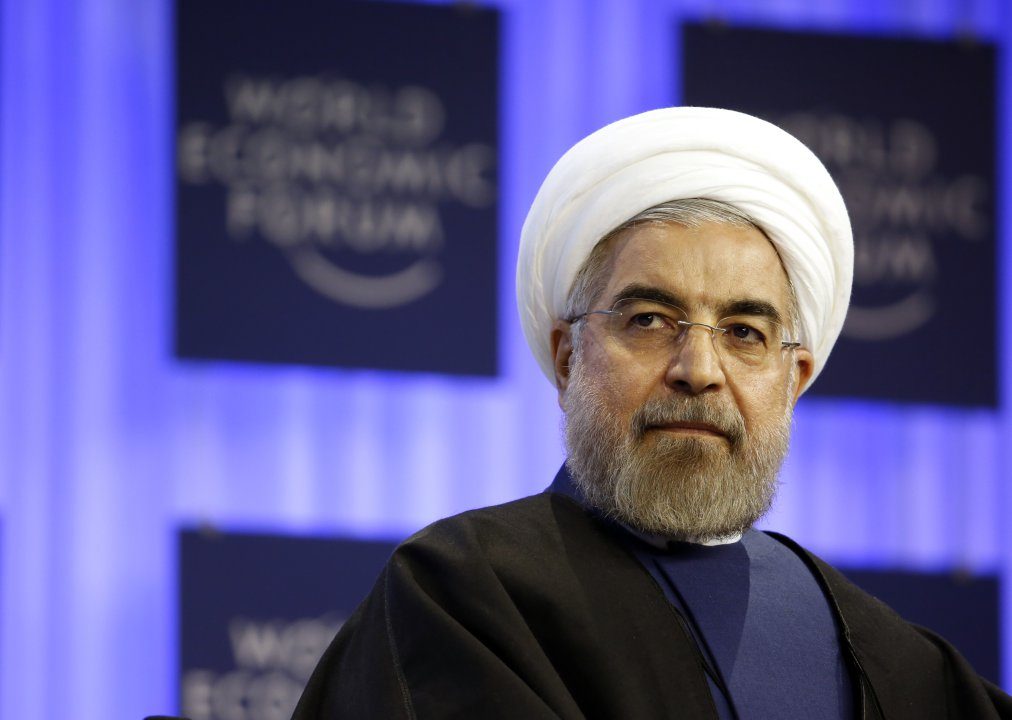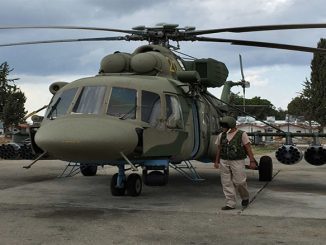
Diplomatic tensions have recently escalated between Turkey and Iran as the two regional powers traded accusations over their roles in the Syria conflict and the Middle East.
The pair have been rivals for centuries but have sought to forge a pragmatic relationship in recent years, with the Islamic Republic strongly supporting Turkish President Recep Tayyip Erdogan after last year s failed coup.
But mainly Sunni Muslim Turkey and Shiite Iran have been on opposite sides of the conflict in Syria, with Ankara seeking the ouster of President Bashar al-Assad and Tehran, along with Russia, his key backer.
The tensions come with UN-backed peace talks for Syria due to restart on Thursday and Turkey engaged in fierce fighting inside Syria to capture the town of Al-Bab from jihadists.
Foreign Minister Mevlut Cavusoglu lashed out at Iran in a speech to the Munich Security Conference,saying some of its actions had undermined security in the region and urging Tehran to promote stability.
“Iran wants to make Syria and Iraq Shiite,” he was quoted as saying by Turkish state media.
Erdogan has also in recent weeks accused Iran of promoting a “Persian nationalism” that had damaged the Middle East.
The Iranian foreign ministry summoned the Turkish envoy to issue a protest after Cavusoglu’s comments while spokesman Bahram Ghassemi warned that Tehran s patience “has limits”.
“We hope that such statements are not made again. If our Turkish friends continue with this attitude we will not remain silent,” he added.
Turkey s foreign ministry spokesman Huseyin Muftuoglu hit back by saying it was “incomprehensible” to receive such accusations from Tehran who he charged with “not hesitating to push into war zones refugees sheltering from regional crises.”
“Instead of accusing countries that have criticised Iran, it should take constructive steps and review its own regional policies.”
The angry exchanges have come just after Erdogan returned from a week-long tour to the Arabian peninsula, including talks with the leadership of Iran s arch regional foe and Ankara s Sunni ally Saudi Arabia.
Ali Vaez, senior Iran analyst with the International Crisis Group, said Iran and Turkey feared the other was seeking to capture regional hegemony via proxies on the ground.
“With each failure to find an accommodation, the context of Turkey s and Iran’s rivalry has become more complex and disagreements more intractable,” he said.
While Turkey has backed rebels in Syria throughout the conflict, Tehran has played a crucial role in aiding Assad. Iran has provided few details over its involvement but has confirmed the deaths of some 1,000 volunteer fighters in Syria.
Regional politics
Diplomatic tensions between Iran and Turkey will not result in an actual confrontation due to the vast economic ties between the regional rivals, Turkish analysts say.
As both regional rivals compete for a greater share of influence in the region, the Syrian government’s victory in Aleppo, coupled with the Islamic State of Iraq and the Levant (ISIL, also known as ISIS) group’s diminishing presence in Iraq, has brought tensions between them to the boil. “The tensions between Turkey and Iran did not appear out of the blue,” said Atilla Yesilada, a political analyst with Istanbul’s Global Source Partners.
“This rivalry had been simmering beneath the surface for a very long time. Recent developments in Syria and Iraq simply forced the two countries to be more overtly aggressive against each other,” Yesilada said.
“Turkey acts as the protector of Sunnis in the region, while Iran wants to build a Shia circle of influence all the way from Tehran to Lebanon, so it is inevitable for these two regional powers to clash,” Yesilada added.
“ISIL is about to leave the stage for good, and Turkey is extremely worried about its replacement,” Yesilada said. “If it doesn’t act immediately and forcefully, Iran-backed militias, Bashar al-Assad or the People’s Protection Units (YPG), a group Turkey considers to be a terrorist organisation, can take over territories previously controlled by ISIL.”
“Turkey does not want another enemy at the gates, so it is making its position known to Iran, clearly and loudly.”
Iran, on the other hand, is actively working towards ending Turkey’s ongoing military presence in Iraq and Syria, to make sure its allies keep controlling the area, analysts said. “Iran is extremely disturbed by Turkey’s Euphrates Shield operation in Syria and its military presence in Iraq’s Bashiqa,” Erdem Aydin, an expert on Iran at Istanbul’s Bogazici University.
“Iran views Turkey’s military presence in these countries as a significant obstacle in front of its desire to extend its influence in the region.”
Iran also wants to cut Turkey’s efforts to create a Sunni controlled safe-zone in northern Syria at its roots, Aydin explained.
“The escalation of diplomatic tensions between Iran and Turkey came after President Erdogan completed a week-long tour of the Arabian peninsula,” Aydin, who is also a foreign news analyst and editor said. “We have reason to believe that Erdogan asked his Saudi and Gulf allies to finance the creation of a safe zone in northern Syria during these visits and Iran was of course disturbed by this development. ”
Regional politics may cause tensions between the two countries, but in the light of their strong economic ties, I don’t believe the recent escalation in diplomatic tensions is going to lead to a serious confrontation” he added.
“It is also possible that the Gulf states asked Erdogan to adopt a more contentious attitude towards Iran in exchange for providing financial assistance for the safe-zone,” Yesilada added.



